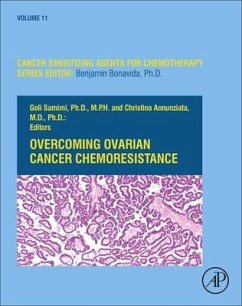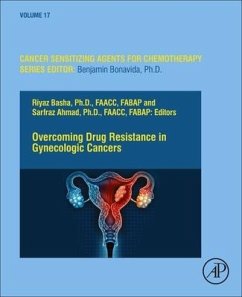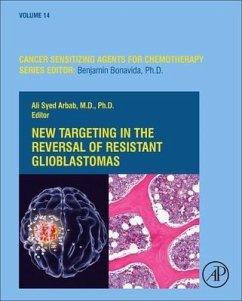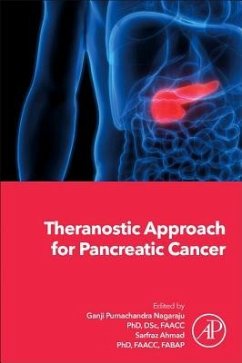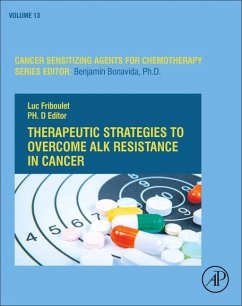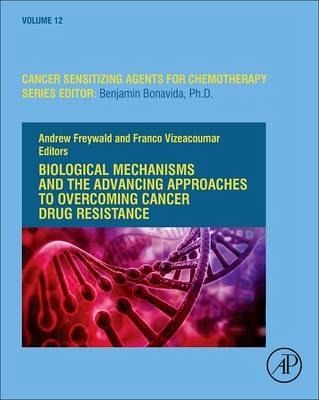
Biological Mechanisms and the Advancing Approaches to Overcoming Cancer Drug Resistance
Volume 12
Herausgegeben: Freywald, Andrew; Vizeacoumar, Franco

PAYBACK Punkte
59 °P sammeln!
Biological Mechanisms and the Advancing Approaches to Overcoming Cancer Drug Resistance, Volume 12, discusses new approaches that are being undertaken to counteract tumor plasticity, understand and tackle the interactions with the microenvironment, and disrupt the rewiring of malignant cells or bypass biological mechanism of resistance by using targeted radionuclide therapies. This book provides a unique opportunity to the reader to understand the fundamental causes of drug resistance and how different approaches are applied. It is a one-stop-shop to understand why it is so difficult to treat ...
Biological Mechanisms and the Advancing Approaches to Overcoming Cancer Drug Resistance, Volume 12, discusses new approaches that are being undertaken to counteract tumor plasticity, understand and tackle the interactions with the microenvironment, and disrupt the rewiring of malignant cells or bypass biological mechanism of resistance by using targeted radionuclide therapies. This book provides a unique opportunity to the reader to understand the fundamental causes of drug resistance and how different approaches are applied. It is a one-stop-shop to understand why it is so difficult to treat cancer, and why only a very few patients respond to therapy and a significant portion develop resistance.
Despite a rapid development of more effective anti-cancer drugs and combination therapies, cancer remains the leading cause of lethality in the developed world. The main reason for this is the ability of heterogeneous subpopulations of tumor cells interacting with constantly evolving tumor microenvironment to resist elimination and eventually, trigger cancer relapse. In this book, experts review current concepts explaining molecular and biological mechanisms of cancer drug resistance and discussing advancing approaches for overcoming these therapeutic challenges.
Despite a rapid development of more effective anti-cancer drugs and combination therapies, cancer remains the leading cause of lethality in the developed world. The main reason for this is the ability of heterogeneous subpopulations of tumor cells interacting with constantly evolving tumor microenvironment to resist elimination and eventually, trigger cancer relapse. In this book, experts review current concepts explaining molecular and biological mechanisms of cancer drug resistance and discussing advancing approaches for overcoming these therapeutic challenges.



